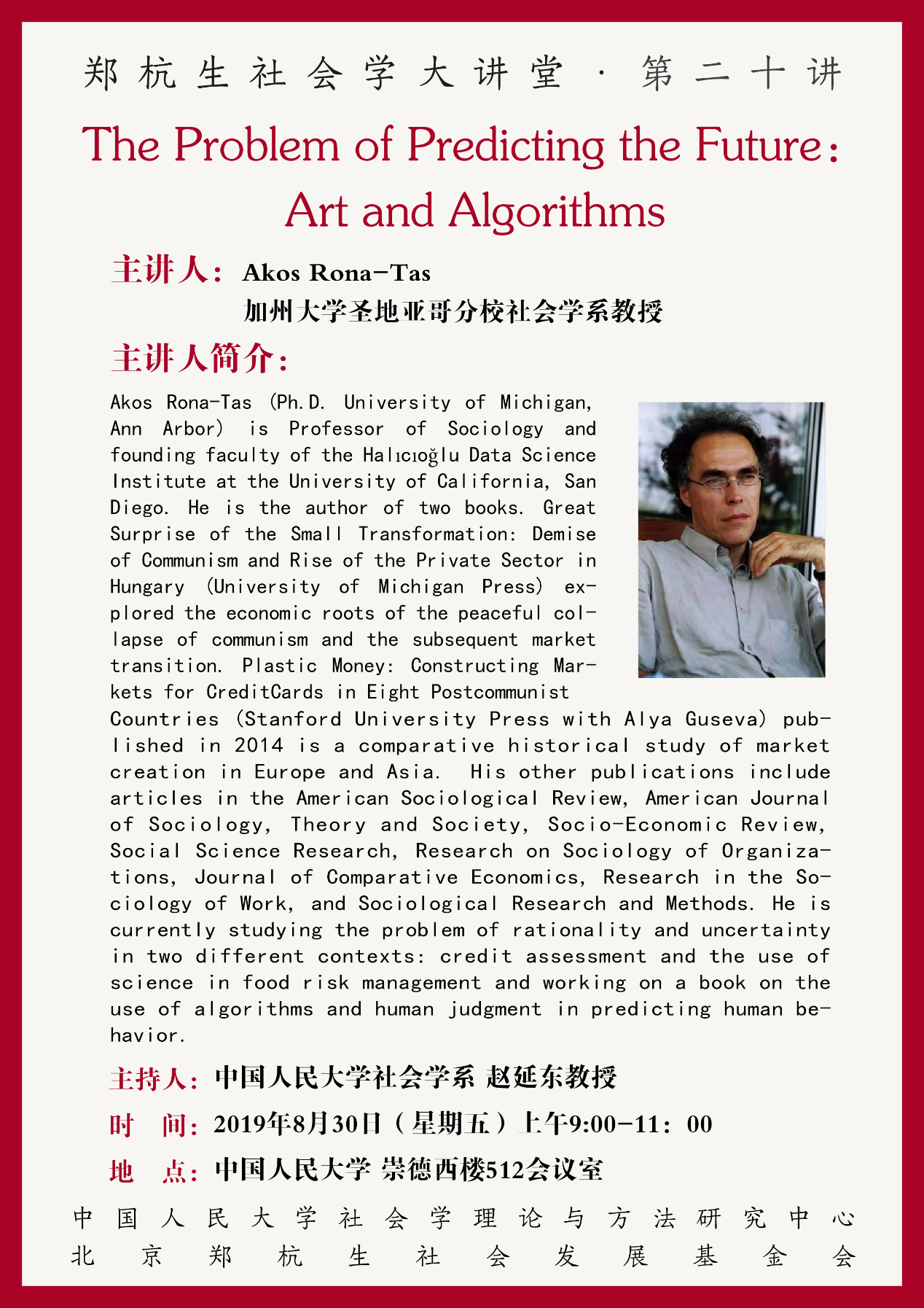学术消息
【郑杭生社会学大讲堂】第二十讲·The Problem of Predicting the Future:Art and Algorithms
2019-08-26 文:社会学院 图:社会学院题 目: The Problem of Predicting the Future:Art and Algorithms
主 讲 人: Akos Rona-Tas
加州大学圣地亚哥分校社会学系教授
主 持 人:赵延东教授
中国人民大学社会与人口学院教授
时 间:2019年8月30日上午9:00-11:00
地 点:中国人民大学崇德西楼512会议室
主办单位:中国人民大学社会学理论与方法研究中心
北京郑杭生社会发展基金会
Akos Rona-Tas教授简介:
Akos Rona-Tas (Ph.D. University of Michigan, Ann Arbor) is Professor of Sociology and founding faculty of the Halıcıoğlu Data Science Institute at the University of California, San Diego. He is the author of two books. Great Surprise of the Small Transformation: Demise of Communism and Rise of the Private Sector in Hungary (University of Michigan Press) explored the economic roots of the peaceful collapse of communism and the subsequent market transition. Plastic Money: Constructing Markets for Credit Cards in Eight Postcommunist Countries (Stanford University Press with Alya Guseva) published in 2014 is a comparative historical study of market creation in Europe and Asia. His other publications include articles in the American Sociological Review, American Journal of Sociology, Theory and Society, Socio-Economic Review, Social Science Research, Research on Sociology of Organizations, Journal of Comparative Economics, Research in the Sociology of Work, and Sociological Research and Methods. He is currently studying the problem of rationality and uncertainty in two different contexts: credit assessment and the use of science in food risk management and working on a book on the use of algorithms and human judgment in predicting human behavior.
讲座摘要:
In 1989, the collapse of communism in Eastern Europe took everyone by surprise. In the thirty years that followed, the Western world has experienced a series of unexpected and highly consequential events, such as the 9/11 terror attacks, the 2008 financial collapse, the European refugee crisis, Brexit, and the election of Donald Trump, to name just a few. Today the world seems, if anything, less predictable than it was decades ago despite the fact that in recent years, we have seen the rapid development of predictive technologies that are replacing the art of – often faulty – human judgment with sophisticated computer algorithms. Algorithms are now everywhere, predicting what people will do in diverse areas such as whether they pay their debts, excel in school or commit crimes. Predictive algorithms are also emerging as a new system of governance and power, sidelining human judgment and deliberation, while handing important decisions to machines. Sociologist must build a much better understanding of the nature and role of predictions and expectations about the future to comprehend, let alone influence, these new developments.
温馨提示:此次讲座在校生可在学务中心搜素”郑杭生社会学大讲堂第二十讲”报名参加,签到后可领取活动积分;外校同学可自行参加。



